If you’re feeling sad, exhausted, and overwhelmed in the days after you have had a baby, you may be experiencing the baby blues. Also known as the postpartum depression, these feelings are very common among new moms, affecting up to 80 percent of mothers. According to the experts, baby blues may be caused by the overflow of physical and emotional changes that accompany childbirth. The baby blues tend to diminish on their own in two weeks usually, but if you’re still feeling upset, angry, or anxious for longer period of time, then it could be a sign of postpartum depression, which requires proper treatment.
Is it the baby blues or postpartum depression?
The majority of mothers experience at least some symptoms of the baby blues immediately after childbirth. It’s caused by the sudden change in hormones after delivery, combined with stress, isolation, sleep deprivation, and tiredness.
You might feel more upset, overwhelmed, and emotionally weak. Generally, this begins within the first couple of days post-delivery, peak around one week, and goes away by the end of the second week postpartum.
Having baby blues are perfectly normal, but if the symptoms persist even after a few weeks or get worse, you may be suffering from postpartum depression.
What is postpartum depression?
Postpartum depression (PPD) is a treatable mood disorder that affects 80% of the new moms. In the beginning, postpartum depression can look similar to the normal baby blues. In fact, postpartum depression and the baby blues share many symptoms, including mood swings, crying jags, sadness, insomnia, and irritability. The difference is that the symptoms of postpartum depression are more severe such as an inability to care for your newborn and handle other daily tasks, and sometimes even having suicidal thoughts.
What are the Common symptoms of postpartum depression?
Postpartum depression signs and symptoms are more intense and last longer. Symptoms usually develop within the first few weeks after giving birth, but may begin earlier ― during pregnancy, or later, up to a year after birth.
Most common Postpartum depression signs and symptoms may include:
- Depressed mood or severe mood swings
- Excessive crying
- Difficulty bonding with your baby
- Withdrawing from family and friends
- Loss of appetite or eating much more than usual
- Inability to sleep (insomnia) or sleeping too much
- Overwhelming fatigue or loss of energy
- Reduced interest and pleasure in activities you used to enjoy
- Intense irritability, anger & hopelessness
- Feelings of worthlessness, shame, guilt or inadequacy
- Diminished ability to think clearly, concentrate or make decisions
- Severe anxiety and panic attacks, Restlessness
- Thoughts of harming yourself or your baby
- Recurrent thoughts of death or suicide
Causes of postpartum depression
Postpartum depression stems from a combination of hormonal, environmental, and genetic factors that are all beyond your control. There’s nothing you do or don’t do that causes PPD.
When you’re pregnant, your estrogen and progesterone levels rise steeply. Within a day of giving birth, these hormones drop to pre-pregnancy levels. That sudden shift, similar to the hormonal swings play a vital role in PPD developing.
In few women, a drop in thyroid hormone levels – which also happens post-delivery – can cause postpartum thyroiditis, with symptoms similar to those of depression. This condition usually appears 4 to 12 months after childbirth.
It is helpful to let the doctor know if thyroid disease runs in your family.
Other factors that contribute to the development of PPD include physical exhaustion after giving birth, sleep deprivation, and the emotional roller coaster of becoming a parent.
What Is the Treatment for Postpartum Depression?
If you’re struggling with feelings of persistent sadness or other symptoms of postpartum depression, it’s important to reach out to your doctor right away so that you can get help. The health practitioners do a postpartum mood screening and refer you to a mental health professional for further evaluation and treatment, if needed.
There’s no shame in asking for help because untreated depression can be lonely, confusing, and even scary.
Getting help and starting to feel better can spark or rekindle the joy of motherhood. Treatment provides an opportunity to understand what’s causing your depression, as well as give you the support you need to recover.
Consult with Shifa International Hospital expert, compassionate & highly-qualified Doctors about this treatable mental disorder.
It’s essential to get treated for your baby’s sake. Having a mother who has untreated postpartum depression is linked to a variety of potential social, emotional, and behavioral problems for children, as well as possible language and learning delays.
If you or any mother you know is suffering from postpartum depression, please book your appointment with our experienced doctors today by calling us on 051-8464646 or visit Shifa International Hospital, for timely and best treatment.
Sources: Mayoclinic, Babycenter, Helpguide.org

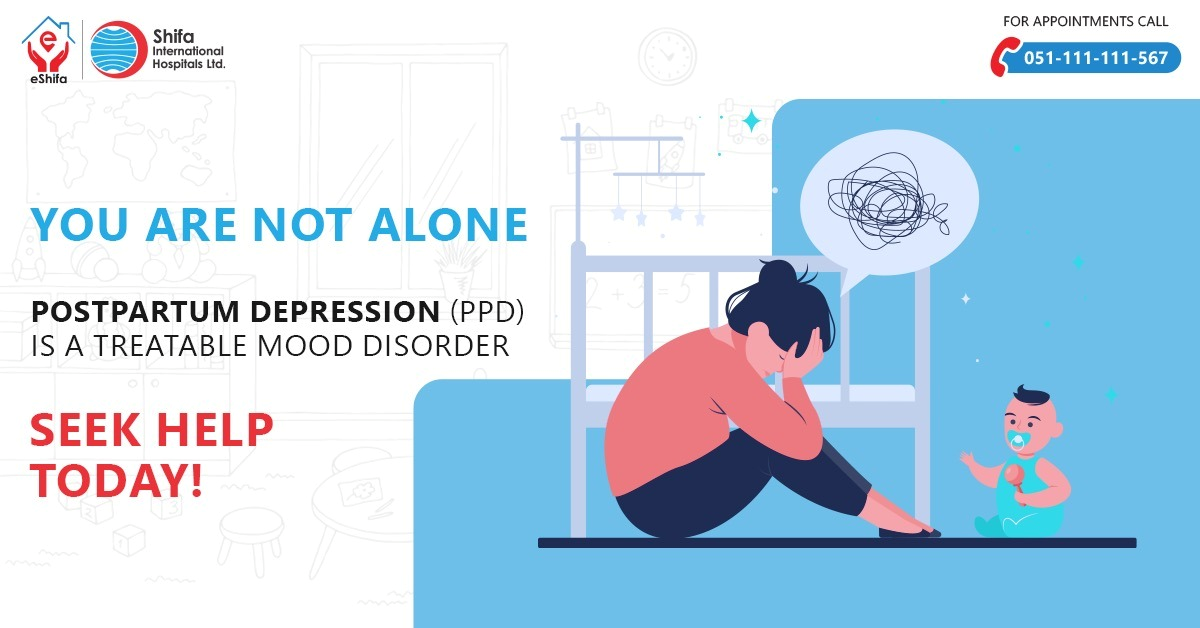
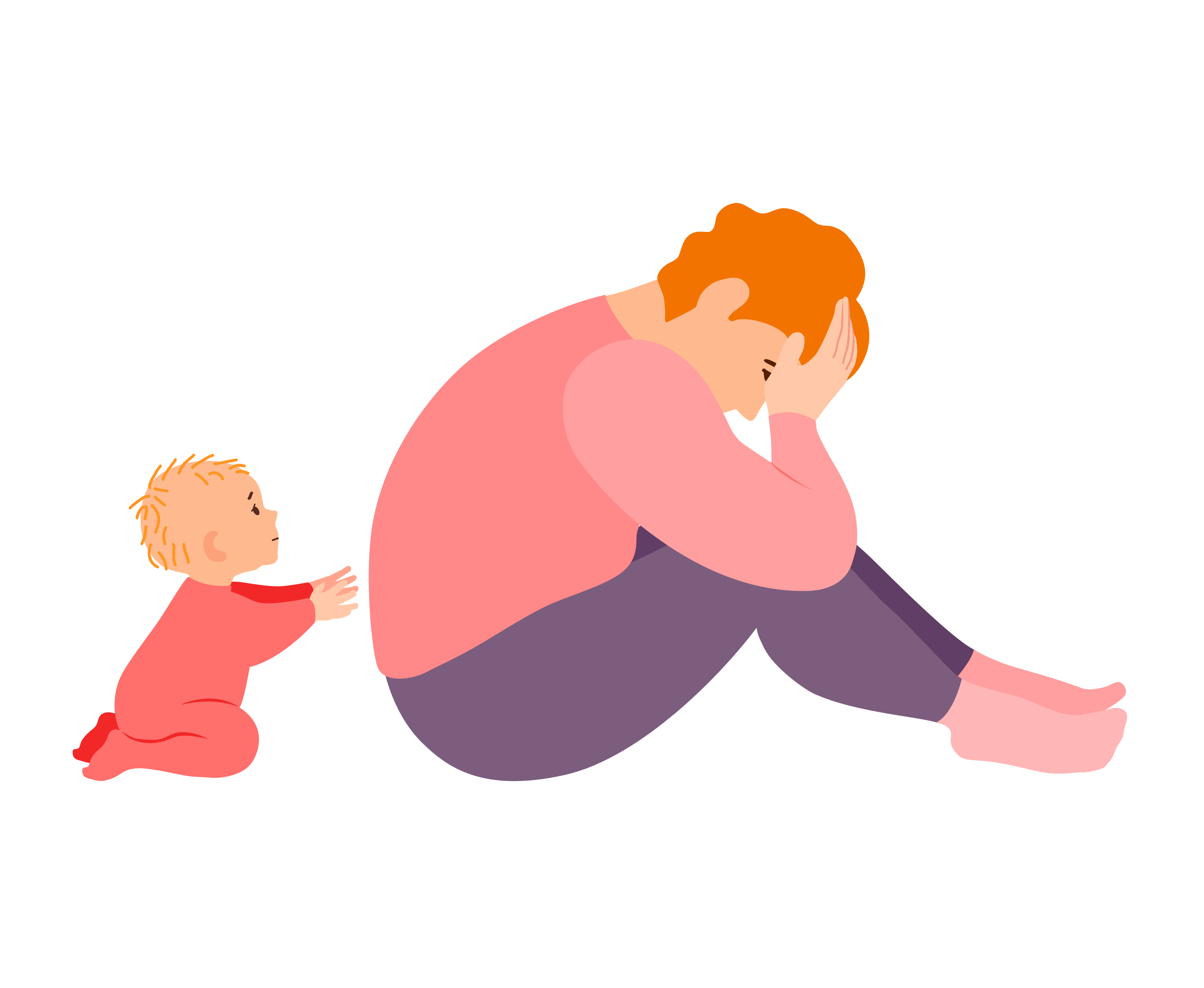
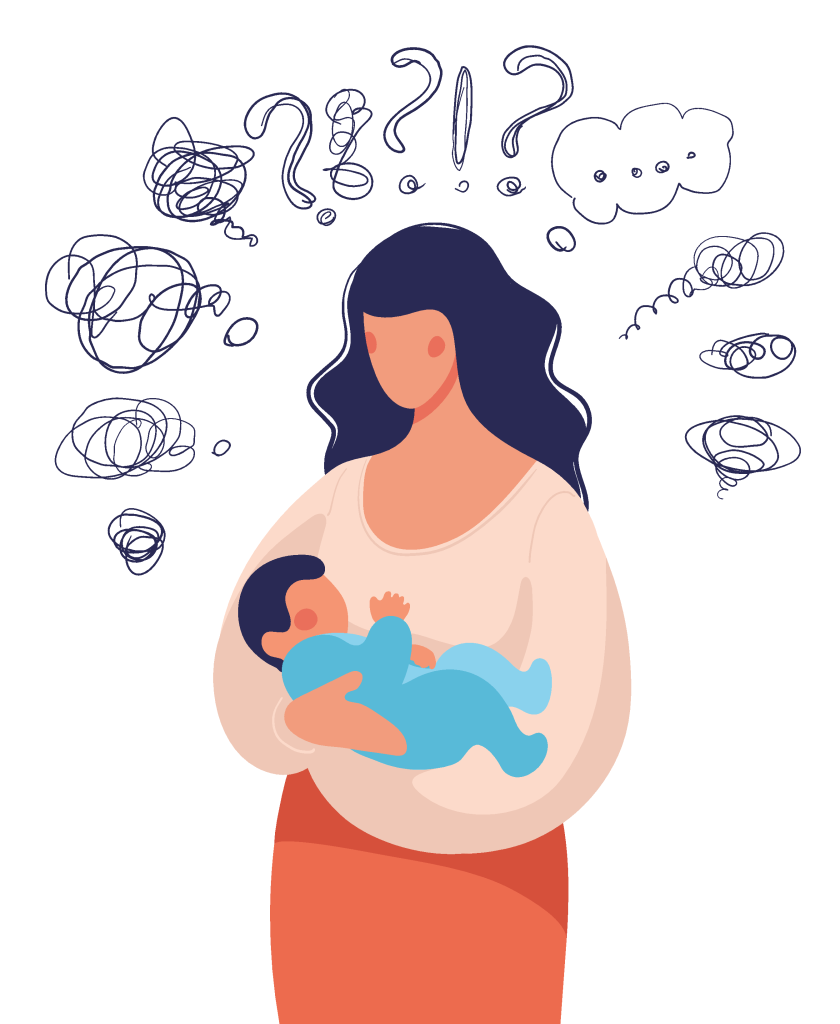

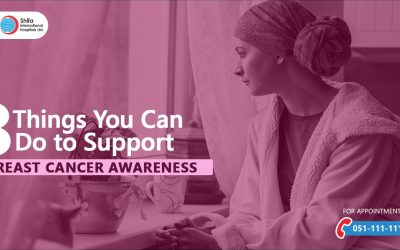
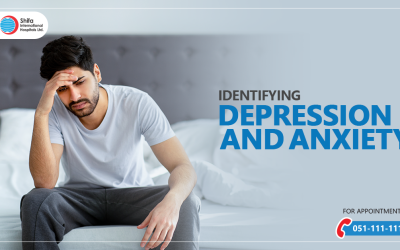
0 Comments